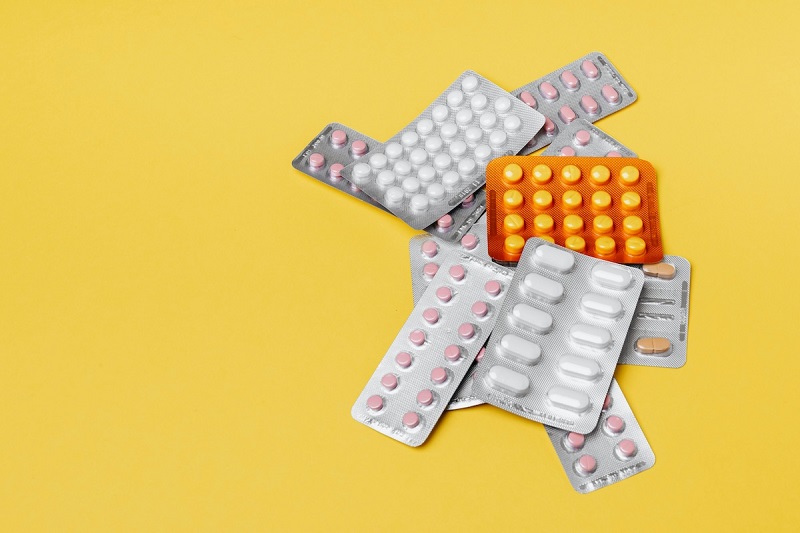I am 37 and was diagnosed with Hashimoto’s disease. The doctor prescribed me levothyroxine, which I understand replaces T4 hormone. I have learned that there are other medications that replace T3 and T4 and even a medication that is made of desiccated animal thyroid that some people swear by. What are the tradeoffs of different medications to treat the effects of Hashimoto’s?
—Appreciating my thyroid
This is one of the most common questions my patients with Hashimoto’s disease ask. Having an underactive thyroid is extremely common — I have Hashimoto’s disease myself. And there is a lot of chatter on the internet from various patients, doctors, and other health care providers, with strong opinions from all of them.
I think it helps to consider some biology. Human thyroids largely produce a form of thyroid hormone called T4 — so named because it has four iodine atoms incorporated into its structure. T4 is long-lasting; it circulates in the blood for about a week. It is also not so hormonally active. As T4 is circulating in the blood, enzymes called deiodinases remove one iodine from the T4 molecule, converting it into T3. T3 circulates in the blood for only about two days but is much more active.

The conventional wisdom is that because humans make T4 in their thyroid, replacing just T4 should be sufficient. However, there do seem to be a subset of patients whose deiodinases do not convert synthetic T4 — that is, levothyroxine, also sold under the brand names Synthroid, Levoxyl, Unithroid, and Tirosint in the U.S. Those patients may benefit from adding T3 to their regimen.
There are currently two ways to add T3 to your medication regimen. In addition to your levothyroxine, you can add a synthetic T3 called liothyronine. This is my preferred method because it allows you to adjust the T4 and T3 doses independently.
The other option is to stop levothyroxine and replace it with a desiccated porcine thyroid product — in layman’s terms, the thyroid is removed from a pig after it has been slaughtered, the water is removed, and the remaining powder is formed into tablets. Desiccated porcine thyroid contains both T4 and T3 in a roughly fixed ratio because that is what pigs make in their thyroid.
For a long time, this was the only option for patients with hypothyroidism. A quick historical aside: using desiccated pig and cow gland was often the original option for treating hormone deficiencies.
There are a few issues with using desiccated porcine thyroid to treat an underactive thyroid. The most obvious is that it is neither vegetarian nor kosher or halal, a significant issue for quite a number of patients.
There is also a lot of batch-to-batch variability in desiccated products because manufacturers don’t actually measure the T4 and T3 in the pills; rather, they measure the iodine content. You can have two pills from two different porcine thyroids with the same amount of iodine but different amounts of T4 and T3, and that difference can be enough to affect patients’ thyroid hormone levels and symptoms.
The biggest challenge I find is that the ratio of T4 and T3 in desiccated products is fixed, and for many patients it contains too much T3 and not enough T4. As a result, they can feel either jittery and shaky or exhausted.
It is important to note that T3 both as liothyronine and desiccated porcine thyroid is not recommended in pregnancy because it has not been adequately studied. Adequate thyroid hormone is critical in pregnancy — a topic for another time — and it is one time when I strongly prefer not to fool around.
All that said, I take levothyroxine, as do most of my patients, and we feel just fine, but I do have a handful of patients who take desiccated porcine thyroid and are pleased with the results.
Community Guidelines




















Log in
Ooof. I just read this and have been taking desiccated thyroid med for many years. I continued to take it throughout my two pregnancies and have two beautiful children (5 and 3), with no doctors mentioning any concerns about this particular type of thyroid med to me. After reading this I am catastrophizing a bit that my children will have some negative consequences from this as they develop. I know you said there are few studies. I guess I’m just expressing my anxiety here after reading this. Feeling upset that I did not think to ask about the particular type of thyroid med I was taking, while also knowing how important it was to be on a thyroid med in pregnancy. Ugh.